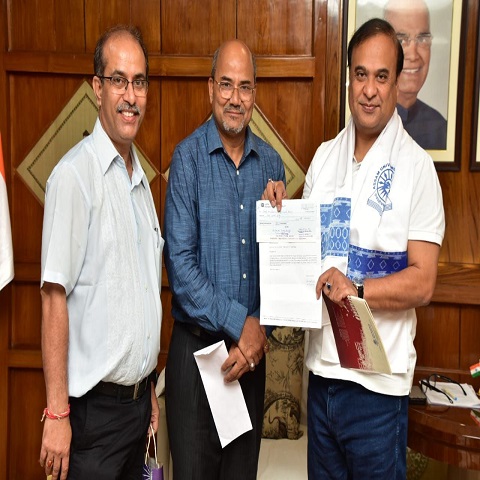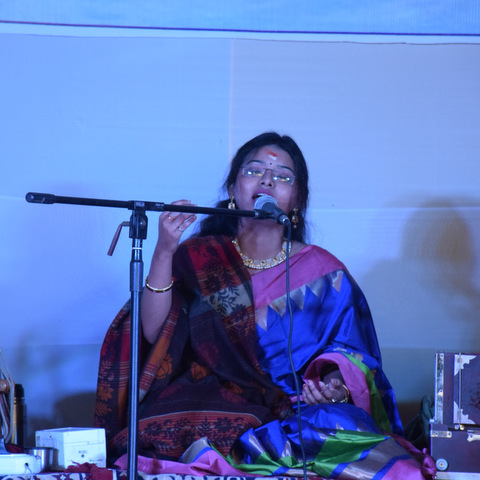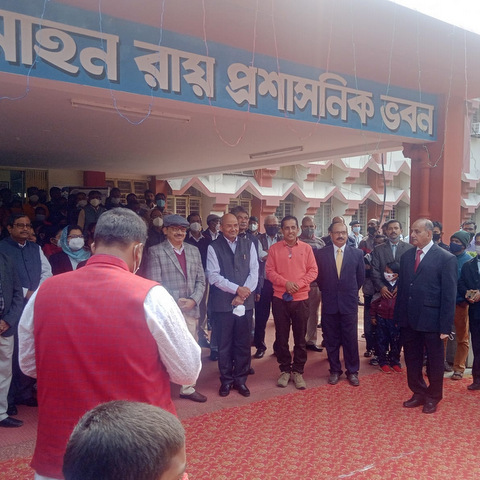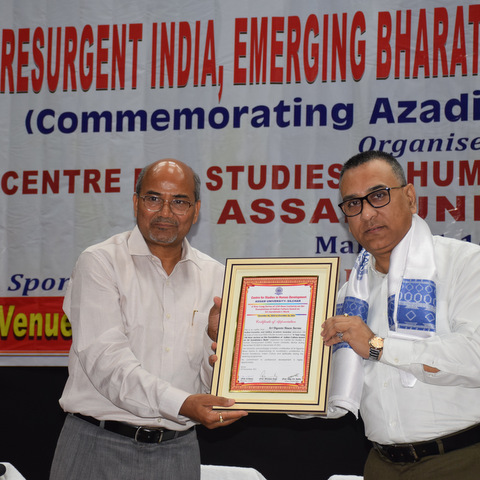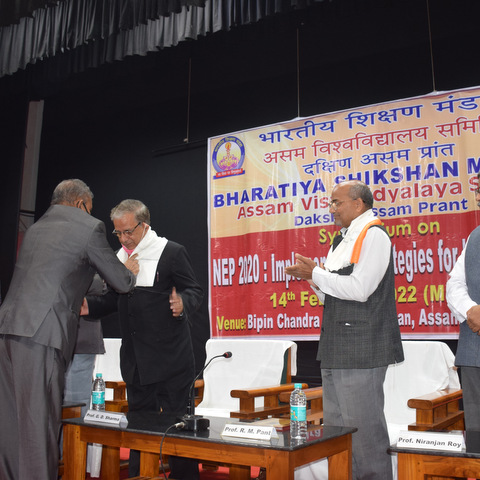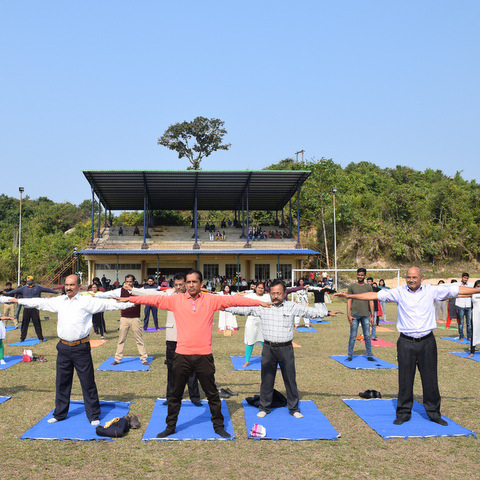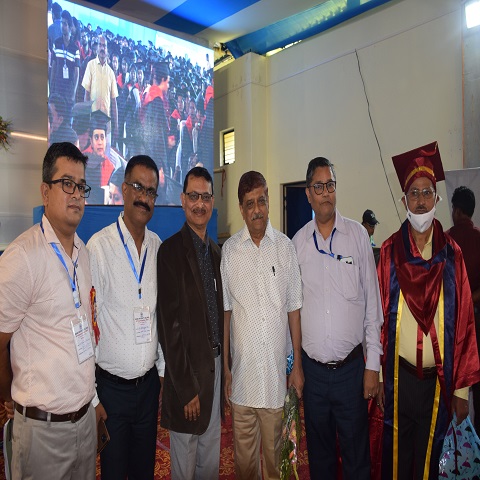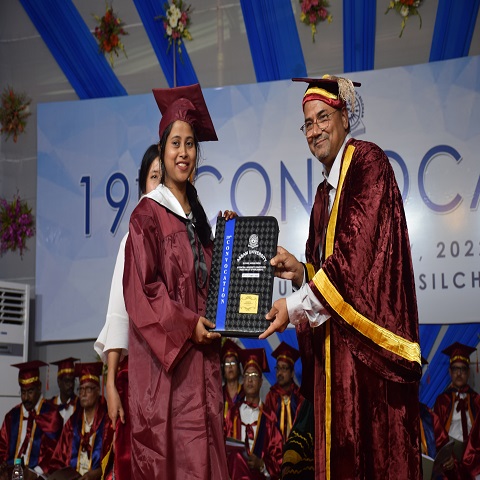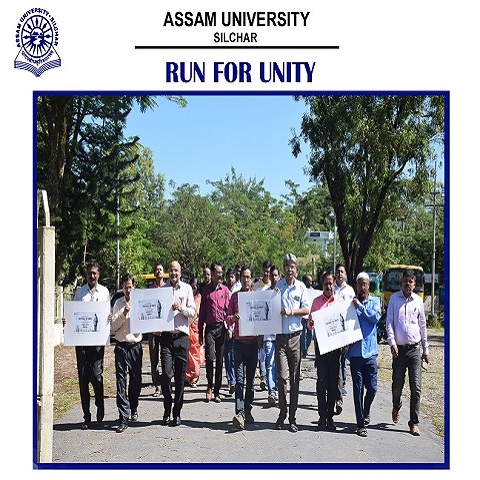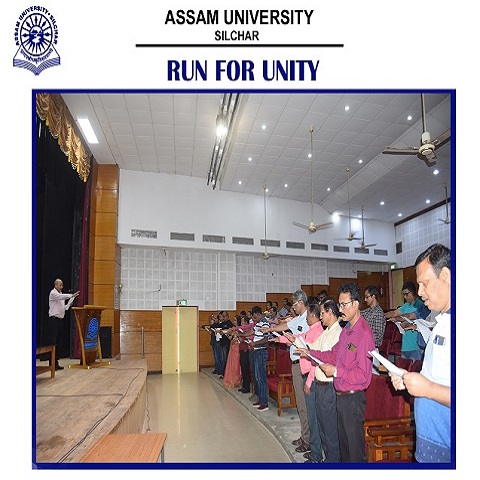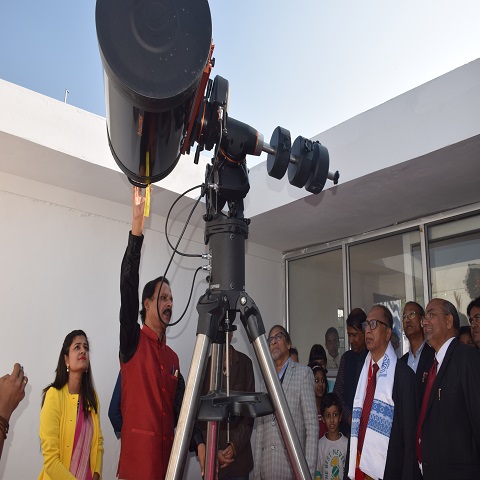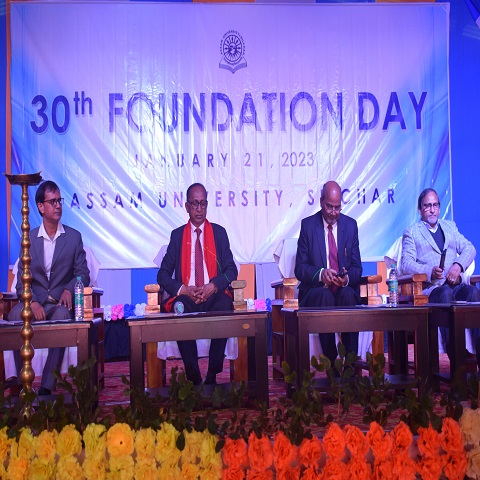Before the advent of the centre there existed Unit of Study on Human Development that functioned from March 2007 onwards for a period of over two years under the Project Cooperation Agreement signed between UNDP and Assam University to initiate academic and research activities on human development. During the project period a common elective course on “Human Development” was in operation under the School of Social Sciences for three consecutive academic years, i.e, from 2007 to 2009. At the same time, courses on human development were introduced in the Department of Economics and curriculum components on human development were incorporated in the curriculum of the departments such as Political Science, Law and Social Work, which have been further enriched over the years, creating huge interest in human development studies among the students and teachers of the university. Besides, a good number of researches on different aspects of human development have been conducted or are going on in various social science departments. Notably, functioning of the Unit of Study, teaching of the common course on Human Development, incorporation of a course or contents on human development in courses of some departments and seminars and workshops organized by the Unit of Study during the UNDP Project period created a tremendous ambience of human development in the university and in the region as a whole. Impressed by this performance of the Unit, the university decided to carry on the rich dividends of its legacy and therefore this university level centre for interdisciplinary studies and researches, i. e., Centre for Studies in Human Development was established.
2. The Rationale
‘Human Development’ signifying paradigm shift in the conceptualization of development in the last decade of the twentieth century brings people into the centre stage of development and considers human beings as the real wealth of a nation and re-orients development to the people’s welfare, i. e., creating an enabling environment for people so as to enjoy long, healthy and creative life. Propelled by the United Nations Development Programme (UNDP) since its first report on human development (1990), this newly emerged approach has changed the outlook of the nations all over the world towards development, poverty, gender disparity and gender empowerment and has infused dynamism into the process of development capturing the reality of quality of people’s life. This approach has received a huge response from policy makers, planners, academics and researchers and therefore a wide arena of researches has been opened on various dimensions of human development such as health, knowledge and skills, decent standard of living, political freedom, human rights, self respect etc. As a result, there is a new awakening of development across nations, regions, cultures, classes, genders, groups and communities through the new prism of ‘quality of life’.
The Centre is located in the South Assam that consists of five districts, out of which two districts are totally hilly, tribal districts; namely, Dima Hasao district and Karbi Anglong district and the rest are located in the marshy tract of the Barak valley. This entire sub-region of the state is suffering from a huge human development- deficit in the North East India. Nonetheless, it provides opening to the states in the Northeast such as Mizoram, Manipur, Meghalaya and Tripura as well as Bangladesh across the border. Therefore, in view of the existing human conditions the centre is poised to come up to the centre stage of interdisciplinary researches, teaching, training, awareness and action related to human development in the coming years. There is huge potential for work on human development in the area sprawling on both sides of the Indo-Bangla border which is well- known for tea gardens as well as backward population of tea garden labour. Undoubtedly, the centre’s spatial, academic and utility vantage is going to attract students and scholars from the North East as a whole as well as the areas across the international border of India being shared with several countries. The studies and researches will expose the reality of quality of life and thereby contribute to mitigation of suffering, deprivation and discrimination in the area of bio-cultural diversity.
3. The Vision
The Centre envisages establishing itself as a premier centre of interdisciplinary learning and researches in India where emphasis will persistently be on blending quality studies and researches on human development, responding to the social needs and expanding the people’s capacities by working in a situation of academia-people interface.
4. The Mission
The mission of the Centre is to prepare the world class human resource for liberating the people particularly in the vicinity and those of the North-eastern region as a whole from miseries, sufferings, discriminations and inequalities as well as to raise awareness, build capacity and develop skills of the people in the vicinity and the region so that they may come up to live a decent life.
5. The Objectives
The Centre aims to disseminate knowledge and skills among the students and scholars so as to create a pool of human resource to redeem the human development situation, particularly in this area as well as to create awareness of the quality of life and to build capacity of the people for living a better life.
The Centre formulates the following objectives to achieve the aim:
• to provide impetus to multidisciplinary studies and researches on human development in a cross-cultural, cross-national and inter-sectoral perspective
• to train students and scholars in such skills as to pursue careers in human development among the people
• to encourage optimal understanding of the status of human development in the region vis-à-vis poverty alleviation and removal of discrimination as well as to promote human rights, social justice and good governance in the region
• to create a resource base of publications and other relevant materials and information on human development in the region
• to undertake programmes and projects on human development seeking appropriate solution-based outcomes in the specific cultural, national, regional and local situations
• To generate the practical knowledge on human development for use of policy-makers, planners, administrators and NGOs
• to develop the research methodologies relevant to capture human development in different socio-cultural and regional situations
6. The Activities
To achieve the objectives the Centre will engage itself in various activities such as:
• offering Post Graduate courses in human development for students of Assam University
• offering choice based open courses in human development for post graduate students of Assam University as well as other universities/ institutes on credit transfer basis
• guiding multidisciplinary researches on human development leading to award of research degrees such as M Phil and Ph D
• seeking research projects and conducting multidisciplinary researches in different dimensions of human development
• publication of monographs, lectures, papers, articles, books, journal etc on human development
• creation of a database of human development researches undertaken for documentation, publications and information
• organization of regional, national and international conferences, seminars, workshops and symposia on a range of relevant topics related to human development
• working for collaboration with other universities, institutions, agencies and scholars having expertise in the fields of human development
• sensitisation of students, NGOs and people to human development issues through tutorials, workshops and lectures
• appropriate use of ICTs and other technologies in disseminating human development knowledge in rural and remote communities under the outreach programme of the Centre
• imparting practical training and craft-skills courses for human development practitioners and beneficiaries in the region
• providing consultancy services to local, regional, national and international aid agencies, NGOs and development banks in designing, implementing, monitoring and evaluating human development projects
Steering Committee:
Chairperson: Prof. Gopal Ji Mishra, Department of Social Work.
Director: Prof. Niranjan Roy, Department of Economics
Treasurer: Dr. Debotosh Chakraborty, Department of Political Science
For contact:
Coordinator of Programme(s):
Prof. Niranjan Roy
Email: cshdaus@gmail.com, cshdgkf2020@gmail.com




